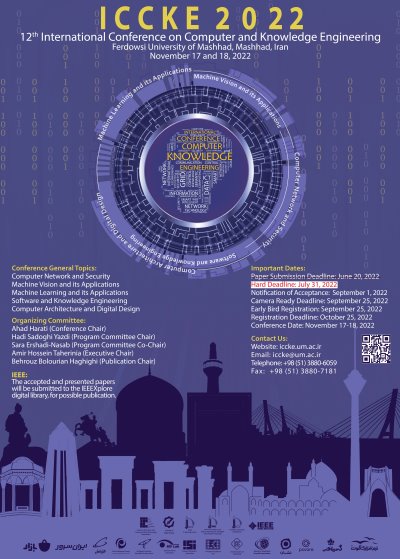0% Complete

Authors :
Keywords :
Abstract :
List of archived papers
Mahdi Dehghani - Samira Vaez Barenji - Saeed Farzi
Farzaneh Kazemzadeh - Amir Karian - Mitra Mirzarezaee - Ali Asghar Safaei
Keyvan Asefpour Vakilian
Atieh Mokhtari - Mohammad Taheri
Rahele Mohammadi - Mahmoud Naghibzadeh - Abdorreza Savadi
Babak Goodarzi - Reza Javidan - Mohammad Sadegh Rezaei
Mansour Davoudi - Mohammad Reza Moosavi - Mohammad Hadi Sadreddini
Farangis Sajadi moghadam - Saeid Rashidi
Afsaneh Hasanebrahimi - Bahareh Kaviani Baghbaderani - Reshad Hosseini - Ahmad Kalhor
Mohammad Mehdi Naseri - Shima Tabibian - Elaheh Homayounvala




